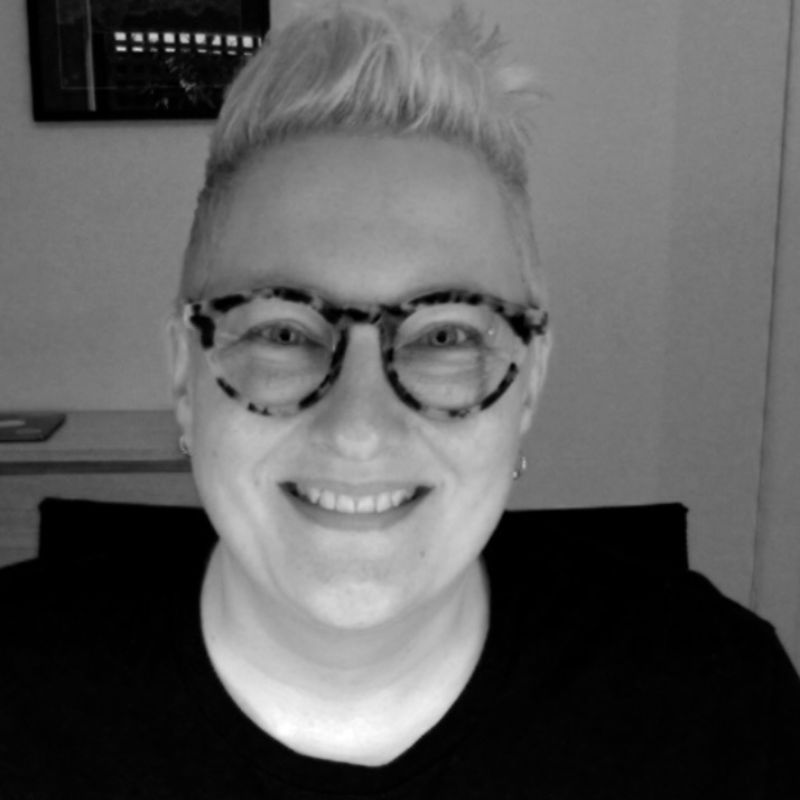Associate Professor Emily Gray
Associate Professor, Education Studies; HDR Delegated Authority



Emily's empirically informed scholarship provides insights into educators’ lived experiences in relation to gender, sexisms, sexualities and workplaces and she aims to illustrate how, where, and why educational inequalities occur as well as to shape responses to them. Her research is theoretically engaged, and she develops new ways of working with and thinking through social theory in its application to research problems and questions, as well as within knowledge translation mechanisms. The breadth and depth of Emily's research means that her work has impacted significantly in the fields of gender discrimination in higher education; workplace-based discrimination in relation to LGBTIQ+ educators in both schools and in higher education; sexisms in higher education and finally, popular culture and gender representation.
One of Emily's key achievements in relation to impact and engagement has been in the translation of research results to ensure impact beyond the academy. Her work with #FEAS Feminist Educators Against Sexism strongly reflects this priority. #FEAS is a collective that Emily co-founded in 2016 and is currently co-led by Mindy Blaise (ECU), Jo Pollitt (ECU) and Emily. #FEAS work together as academics, artists, and performers to develop creative and innovative research translation mechanisms including zine making, exhibitions, short films, and live performances. #FEAS aim to make research findings intelligible to audiences outside of the academy and, as their reputation grows, they develop performance pieces for public consumption.
Emily brings a nuanced and sophisticated understanding of how gender operates within the social world and specifically within the workplace to her work in teacher education. Her work with #FEAS has had global impact on research into gender-based discrimination in universities through written submissions and more so by non-traditional, innovative, and creative means of knowledge translation such as performance, exhibition, and large-scale collaborations. This work is shaping the ways in which challenges to everyday and structural sexism are happening internationally.

As a researcher, Emily is interested in questions of gender and sexuality and with how these identity categories are lived and experienced within social institutions. Her key research interests therefore lie with questions related to gender, social justice, student and teacher identity and with wider social justice issues within educational discourse and practice. She also writes on popular culture, public pedagogies and audience studies, online fandom and media and popular culture as pedagogical tools. She is co-founder of #FEAS Feminist Educators Against Sexism, an international feminist collective committed to developing creative interventions into sexism in the academy and other places.
Gender, Sexism, Higher Education, Sexualities, Sociology

Sex Education: Sexuality, Society and Learning, 13. (6): 702-714
Gray, E.M. (2013)
Sexualities. 19.(3): 286-303
Gray, E.M., Harris, D. and Jones, T. (2016).
Sex Education: Sexuality, Society and Learning. 14 (3): 338-353.
Jones, T., Gray, E.M. and Harris, D. (2014).
Book Chapters
Special Issue Edited Journals
Book Chapters
Edited Books
Book Chapters
Other
Book Chapters
Special Issue Edited Journals
Book Chapters
Edited Books
Book Chapters
Book Chapters



Acknowledgement of Country
RMIT University acknowledges the people of the Woi wurrung and Boon wurrung language groups of the eastern Kulin Nation on whose unceded lands we conduct the business of the University. RMIT University respectfully acknowledges their Ancestors and Elders, past and present. RMIT also acknowledges the Traditional Custodians and their Ancestors of the lands and waters across Australia where we conduct our business - Artwork 'Sentient' by Hollie Johnson, Gunaikurnai and Monero Ngarigo.
Acknowledgement of Country
RMIT University acknowledges the people of the Woi wurrung and Boon wurrung language groups of the eastern Kulin Nation on whose unceded lands we conduct the business of the University. RMIT University respectfully acknowledges their Ancestors and Elders, past and present. RMIT also acknowledges the Traditional Custodians and their Ancestors of the lands and waters across Australia where we conduct our business.